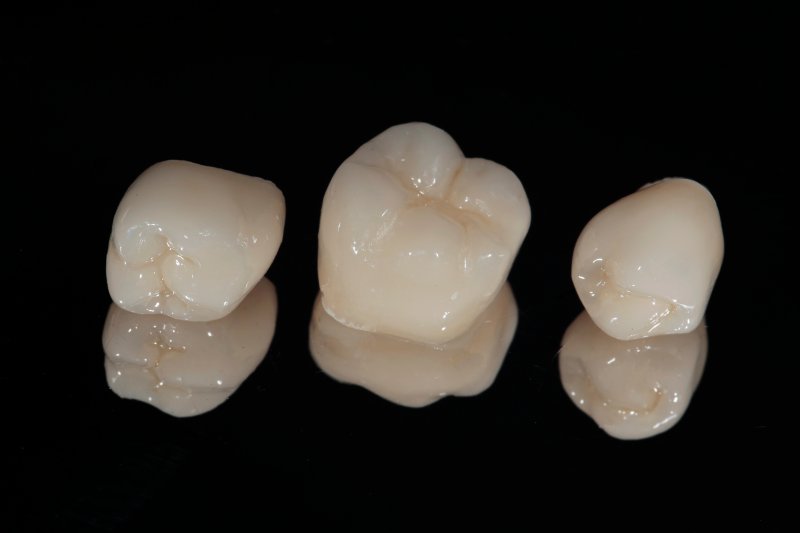
Dental crowns serve to cover and protect damaged teeth while restoring them to their original size, strength, appearance, and function. While crowns can last for up to fifteen years or more with excellent care, certain bad habits can dramatically diminish their life expectancy. Here’s a brief overview of what can cause a dental crown to fail along with a few tips for making them last longer.
What Can Cause a Dental Crown to Fail?
While dental crowns are designed to be durable as well as comfortable, they are not invincible. A crown can require replacement if it becomes damaged or if the tooth wearing it becomes infected. A few bad habits that can make your crown fail sooner include:
- Neglecting oral hygiene: It’s important to brush your teeth at least twice a day and to floss and use antibacterial mouthwash at least once to protect your crown. This will eliminate plaque and food debris that can lead to tooth decay and gum disease.
- Abusing your teeth: Your teeth can only be safely used for smiling, speaking, and chewing, and using them for any other purpose counts as abuse. This includes chewing on non-food items like fingernails, writing utensils, paperclips, and ice as well as using your teeth to open packages or bottles.
- Grinding: Some people grind their teeth involuntarily as they sleep and others grind as a stress response when awake. If you grind when awake, being mindful of the habit can help you break it, and wearing a mouthguard to bed can protect your teeth from damage if you grind in your sleep.
How Can I Tell if My Dental Crown Needs to Be Replaced?
While only a dentist can make the final call as to whether your crown needs replacement, there are a few signs that you should ask for their opinion on the matter. A few of these include:
- The tooth hurts: If the tooth wearing a crown hurts, it may be because it has become infected. In these cases, the crown will need to be removed so the decay can be resolved and replaced afterward.
- The crown isn’t holding still: If your crown is moving around on its tooth, it may need to be cemented again or replaced. This can happen due to chewing sticky or chewy items like gum, caramel, taffy, or bread.
- The crown doesn’t look right: Your crown should make your smile look natural and healthy. If your crown appears worn, discolored, or chipped, getting a new crown might be a great idea.
Dental crowns are long-lasting dental restorations that can help you maintain a beautiful smile. With excellent care, they can serve you for years to come.
About the Author
Dr. Kathy Lam earned her dental doctorate at Howard University College of Dentistry in 2002 and completed her residency at Waterbury Hospital Health Center in Connecticut. She is proud to be a member of the American Dental Association, the Academy of General Dentistry, and the Illinois State Dental Society. Her office in Wheaton, IL offers general, cosmetic, emergency, and restorative dentistry such as dental crowns. If you’d like to have a qualified dentist take a look at your dental crown, contact her office online or dial (630) 653-7720.
